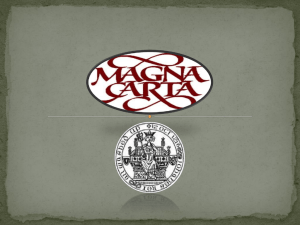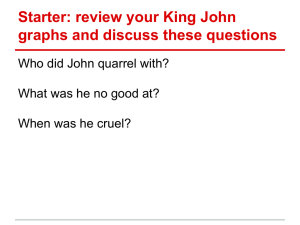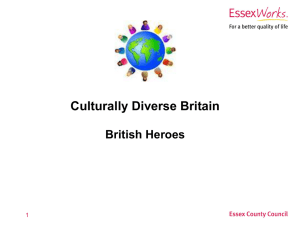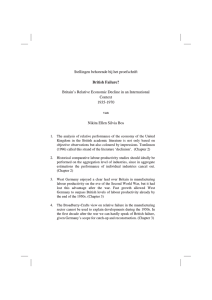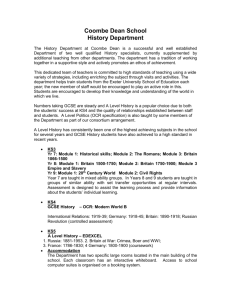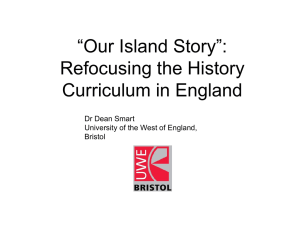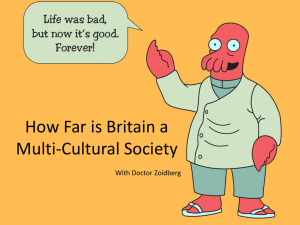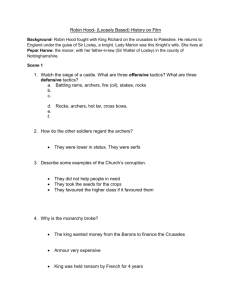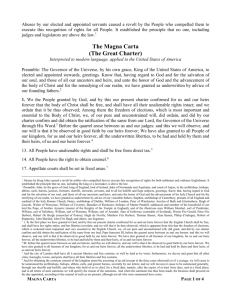British History Exam: Sample Exercises
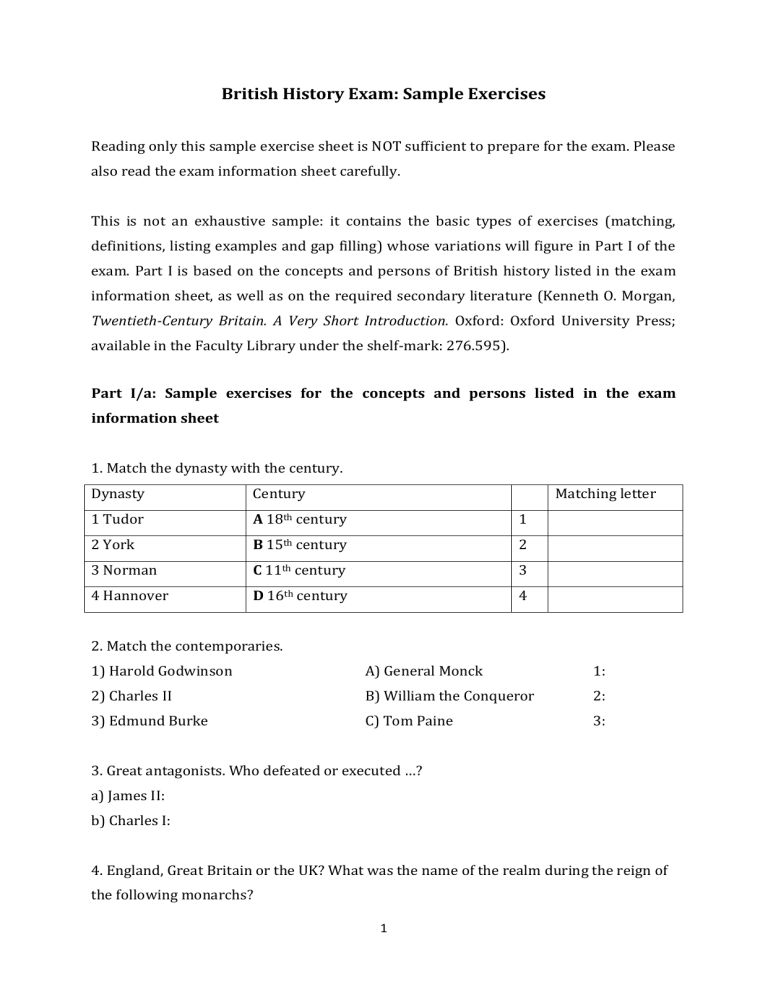
British History Exam: Sample Exercises
Reading only this sample exercise sheet is NOT sufficient to prepare for the exam. Please also read the exam information sheet carefully.
This is not an exhaustive sample: it contains the basic types of exercises (matching, definitions, listing examples and gap filling) whose variations will figure in Part I of the exam. Part I is based on the concepts and persons of British history listed in the exam information sheet, as well as on the required secondary literature (Kenneth O. Morgan,
Twentieth-Century Britain. A Very Short Introduction. Oxford: Oxford University Press; available in the Faculty Library under the shelf-mark: 276.595).
Part I/a: Sample exercises for the concepts and persons listed in the exam information sheet
1. Match the dynasty with the century.
Dynasty
1 Tudor
Century
A 18 th century 1
Matching letter
2 York
3 Norman
B 15 th century
C 11 th century
2
3
4 Hannover D 16
2. Match the contemporaries.
1) Harold Godwinson
2) Charles II
3) Edmund Burke th century
A) General Monck
C) Tom Paine
4
B) William the Conqueror
1:
2:
3:
3. Great antagonists. Who defeated or executed …? a) James II: b) Charles I:
4. England, Great Britain or the UK? What was the name of the realm during the reign of the following monarchs?
1
a) Queen Victoria:
5. England, Great Britain or the UK? What was the official name of the realm in the life of the following persons? a) Stanley Baldwin: b) William Booth:
6. Criticism. The following persons were critical of … (you can mention persons, events or social phenomena). a) John Wyclif: b) Titus Oates:
7. Criticism. The following social, artistic or religious movements were critical of … (you can mention persons, events or social phenomena). a) Lollards: b) Roundheads:
8. Conservative or Labour? To which party did the following 20 th -century PMs belong? a) Winston Churchill: b) Clement Attlee:
9. Mention one outstanding work by the following persons. a) Beda Venerabilis:
10. List THREE … a) pillars of the welfare state institutions in the late 1940s: b) colonies of the British Empire:
11. Mention one MAJOR immediate (short-term) consequence of the following events: a) the last Jacobite rising in Scotland:
12. Key dates. What significant event happened in the following years?
1066 -
2
13. Who was the monarch of England/(Great) Britain when …? a) Brian Boru became the first high king of Ireland: b) the Short Parliament was summoned:
14. Fill in the gaps with the missing information. a) After Edward the Confessor’s death, the succession of …………………, who also inherited the earldom of Wessex, was not acknowledged by William, Duke of Normandy. b) From 1653 Britain was governed by ........................................ alone as Protector. c) The group of laws called ………………………………… were passed during the Napoleonic wars and in the following decades in order to protect the interests of the producers. d) The “Iron Lady” of the 1980s, ………………………………, represented with her economic policy a return to free-market economy.
Part I/b: Questions related to Kenneth O. Morgan’s Twentieth-Century Britain
In this part, you can expect similar types of questions as in Part I/a, but focusing on the contents of this book, with especial emphasis on the following issues:
Britain’s participation in international alliances between 1900 and 1945
New theories and ideas of economy and the state following the Great Depression
(1930s and 1940s)
Britain’s role in the diplomacy of WWII
The welfare state and the achievements of Attlee’s government
Decolonization
Post-WWII immigration and race relations in Britain
The major achievements of the following administrations: Attlee, Wilson,
Thatcher
Northern Ireland: From the Troubles to the Good Friday Agreement (1968-98)
Nationalism and devolution in Wales and Scotland
Major constitutional reforms of the 20 th century (electoral reforms, House of
Lords, Life Peerages Act, Blair’s constitutional reforms)
3
Part II: Comprehension exercises related to the obligatory sources
In this part, you will be expected to read passages quoted from the obligatory sources and answer the ensuing questions. Do NOT quote the source; phrase your answers in your own words. This is only one sample exercise, but you will be given several such comprehension exercises at the exam.
1. “
SINCE WE HAVE GRANTED ALL THESE THINGS for God, for the better ordering of our kingdom, and to allay the discord that has arisen between us and our barons, and since we desire that they shall be enjoyed in their entirety, with lasting strength, for ever, we give and grant to the barons the following security:
The barons shall elect twenty-five of their number to keep, and cause to be observed with all their might, the peace and liberties granted and confirmed to them by this charter.
If we, our chief justice, our officials, or any of our servants offend in any respect against any man, or transgress any of the articles of the peace or of this security, and the offence is made known to four of the said twenty-five barons, they shall come to us - or in our absence from the kingdom to the chief justice - to declare it and claim immediate redress. If we, or in our absence abroad the chiefjustice, make no redress within forty days, reckoning from the day on which the offence was declared to us or to him, the four barons shall refer the matter to the rest of the twenty-five barons, who may distrain upon and assail us in every way possible, with the support of the whole community of the land, by seizing our castles, lands, possessions, or anything else saving only our own person and those of the queen and our children, until they have secured such redress as they have determined upon. Having secured the redress, they may then resume their normal obedience to us.”
(a) Which document does this passage come from?
(b) When was the document issued?
(c) Who issued the document?
(d) Who is the “we” of the document?
(e) Explain the meaning of “baron” in this document.
(f) The text refers to a “discord” which led to the issuing of this document. What was this event?
(g) Which liberties had to be granted according to this document? Mention five.
(h) What was the role of the 25 barons whom the text writes about?
4
